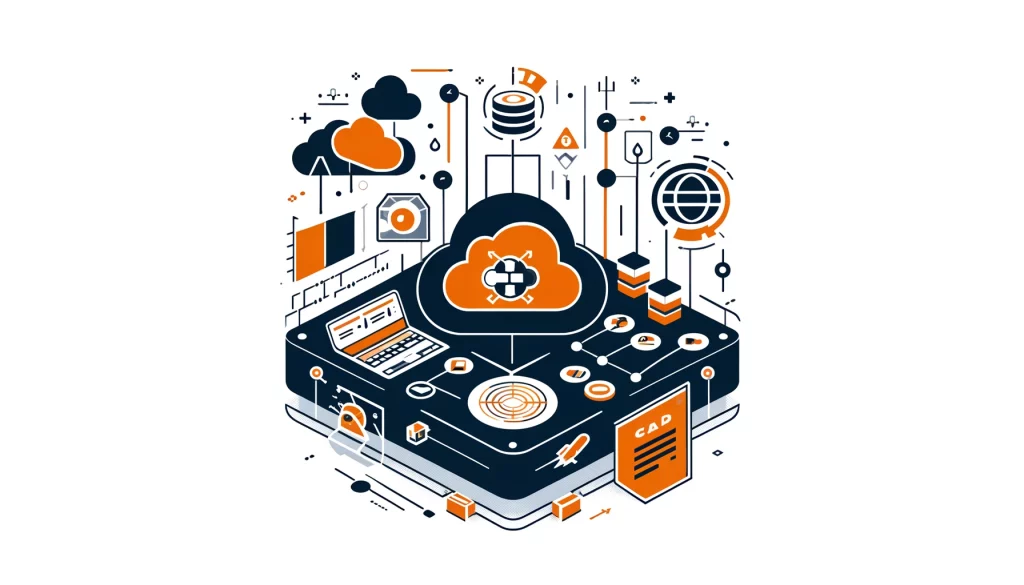
Data Platform Governance

Introduction
In today’s data-driven business world, effectively governing data platforms is critical. Many organizations lack formal data platform governance, leaving their data vulnerable to issues like unreliable information, security breaches, and regulatory non-compliance. Implementing a strong data governance model helps ensure compliance and control over the data you use and store.
This article covers the fundamentals, including:
- What data platform governance entails
- Technical and organizational governance
- Examples and best practices
- The security aspects of data governance
- How DataSunrise can help enhance your data governance
By the end, you’ll have a solid understanding of this important topic.
What is Data Platform Governance?
Data platform governance refers to establishing and maintaining standards and practices for managing, operating, and using an organization’s data platform. It involves setting guidelines and protocols for data collection, storage, access, and usage within the platform.
Typically, organizations split governance into two areas:
- Technical governance – Focuses on the design and operation of the data platform itself. Ensures the platform meets organizational needs.
- Organizational governance – Addresses the social and organizational aspects of data management. Defines roles, responsibilities, and policies related to data.
Incorporating both technical and organizational governance into a comprehensive plan improves data reliability, security, and integrity. A strong data governance model is key.
Technical Governance
Technical governance involves establishing standards and procedures for the technical operation of the data platform. Key areas include:
- Data architecture – The design and structure of the platform, including data organization and flow.
- Data quality and integrity – Ensuring data accuracy, completeness, and consistency through validation, cleansing, and enrichment processes.
- Data security and privacy – Protecting data from unauthorized access and ensuring compliance with privacy laws and regulations.
Technical governance helps maintain a reliable, efficient, and secure data platform. A critical component of your overall data platform governance strategy.
Organizational Governance
Organizational governance focuses on the social and organizational aspects of data management. It defines roles, responsibilities, and policies related to data within the organization.
Important elements of organizational governance include:
- Roles and responsibilities – Clearly defining the roles of different data stakeholders.
- Data ownership and stewardship – Determining data ownership and establishing stewardship processes.
- Data policies and standards – Developing policies for data management and use, including standards for quality, security, privacy, and access.
Ensure that you align data management with organizational values and goals to use data appropriately and responsibly. Organizational governance is key to your data governance model.
Examples of Data Platform Governance
One example is developing data architecture standards. This ensures that the platform meets organizational needs through its design. Standards may cover areas like:
- Data modeling
- Data integration
- Data security
Another example is establishing clear roles and responsibilities for data management and use. This involves:
- Outlining responsibilities for each data stakeholder
- Establishing data ownership and stewardship processes
- Developing and enforcing data policies and standards
Implementing these types of governance measures helps ensure a well-designed, well-operated, and reliable data platform.
Data Platform Governance Best Practices
Follow these best practices:
- Align governance with business objectives. Set specific goals and metrics, and regularly review policies to ensure alignment.
- Establish clear roles and responsibilities. Define the roles of data owners, stewards, and users to ensure transparency and accountability.
- Develop and enforce data policies and standards. Regularly review and update policies to keep them relevant.
- Implement a data governance training program. Provide training and resources to promote data literacy and responsibility. Consider certification processes.
By implementing these practices, you can set your organization up for data governance success.
The Security Aspect of Data Platform Governance
Data security is a critical component of governance. Protecting sensitive data from unauthorized access and misuse is essential.
Key aspects of data security governance include:
- Access controls – Implementing strict controls over who can access what data.
- Encryption – Encrypting sensitive data both in transit and at rest.
- Monitoring and auditing – Regularly monitoring data access and usage, and conducting audits to identify potential security issues.
By prioritizing security in your data governance model, you can help safeguard your organization’s valuable data assets.
How DataSunrise Can Help
Creating data governance standards and practices from scratch requires expertise. DataSunrise’s exceptional and flexible tools can help enhance your data governance and security by:
- Streamlining access to sensitive data
- Creating and implementing security policies quickly, regardless of existing infrastructure
- Providing powerful features for data management, security, audit rules, masking, and compliance
To see how DataSunrise can strengthen your data platform governance, contact our team for an online demo.
Conclusion
Data platform governance is essential for ensuring the reliability, security, and integrity of your organization’s data. Establishing standards and practices for data management, operation, and use can help reduce risks and improve business outcomes.
Remember to focus on both technical and organizational governance, implement best practices, prioritize security, and leverage tools like DataSunrise to streamline the process. With a strong data governance model in place, you’ll be well-positioned for success in today’s data-driven world.
